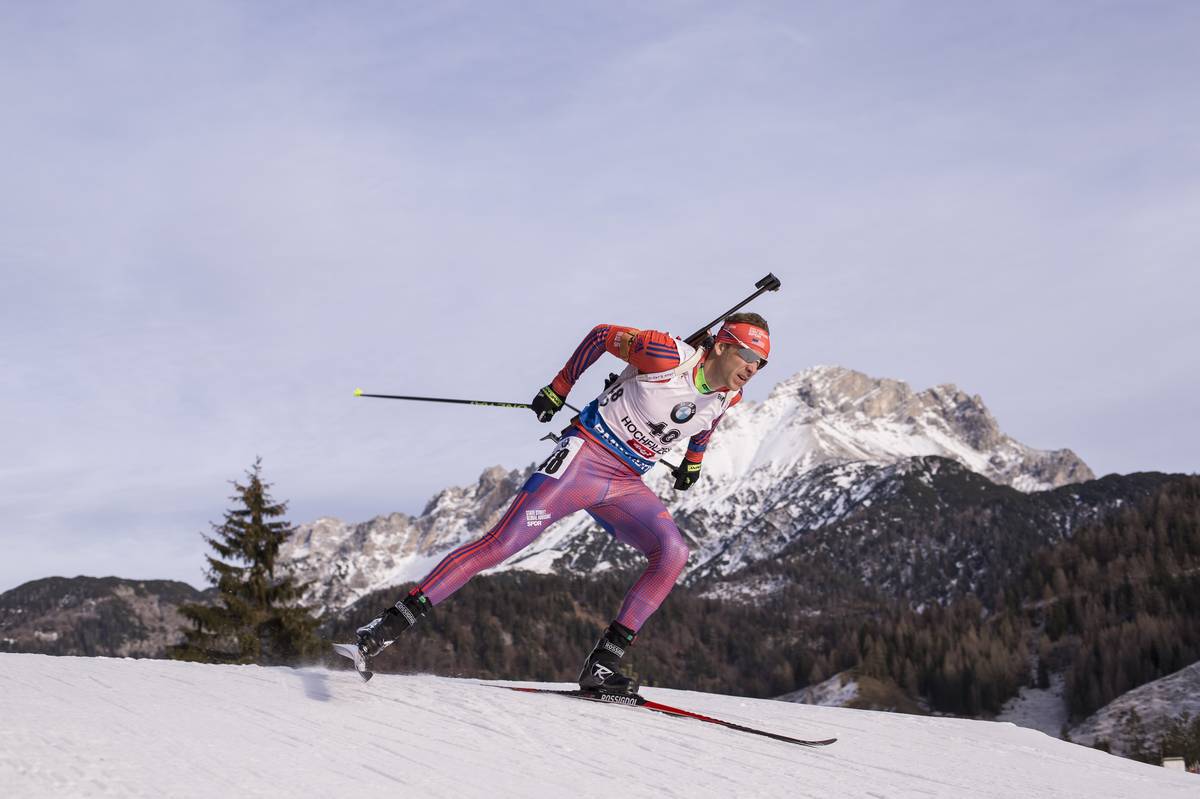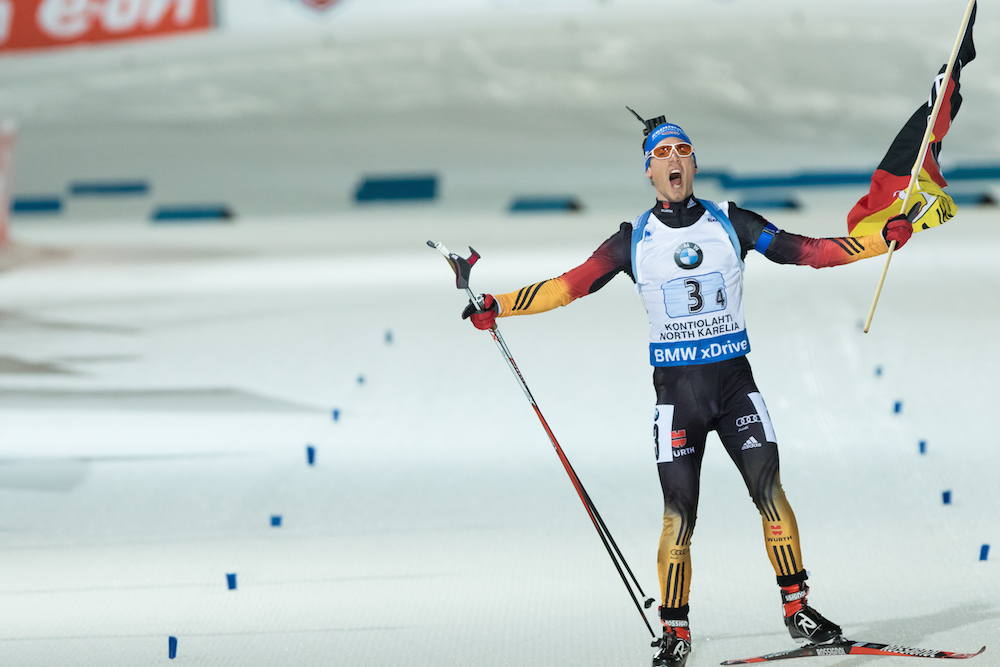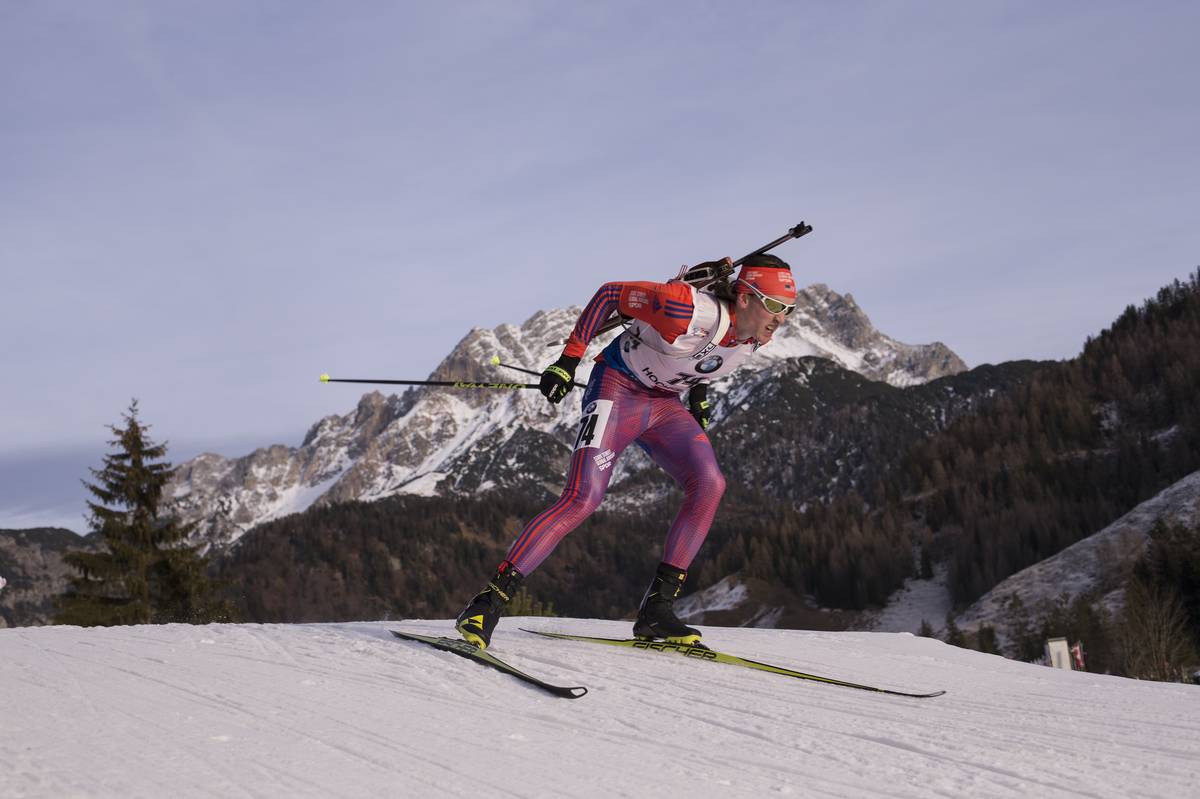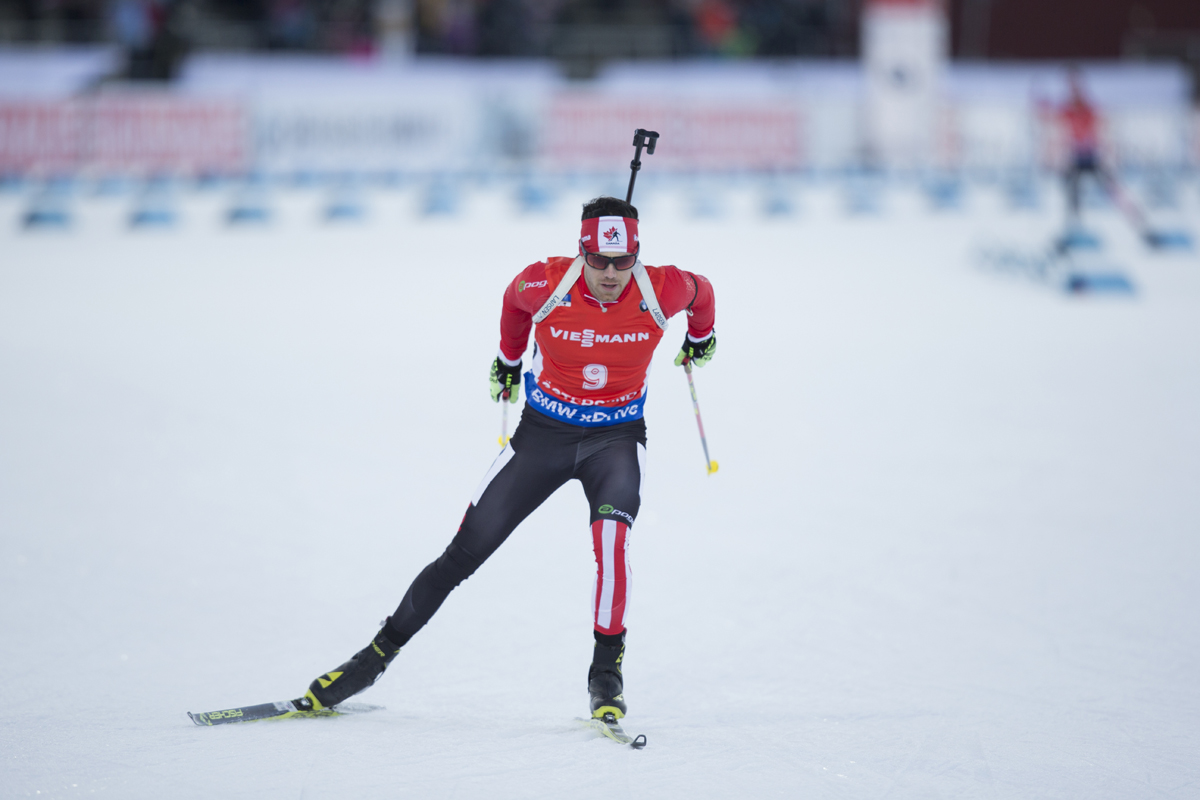
After Simon Schempp swept the season-opening biathlon Grand Prix races in Sjusjøen, Norway, it seemed he would be a force to be reckoned with on the World Cup circuit.
The German placed second in the opening 20 k in Östersund, Sweden, but then staggered in the sprint, missing eight targets and the next day’s pursuit. The beginning of the season had been derailed.
Schempp was back with a vengeance when the World Cup moved to Hochfilzen, Austria, on Friday. With perfect shooting, he survived challenges from a charging Martin Fourcade of France (second place, +9.9 seconds) and late starter Tarjei Bø of Norway (third, +18.9).

“It was really hard after last week,” Schempp said in a press conference after the race. “It did not go away easily. It was very hard on myself-confidence…I was really nervous today after that. But I worked very hard all week on the shooting range. I was really powerful on the skis today. I am really proud of myself today.”
That’s a feeling some of the the North American men can appreciate. Lowell Bailey also shot clean, finishing 12th (+40.9); like Schempp, he had missed the pursuit in Sweden, saddled in his case with six penalties on a particularly gusty day on the range.
“I was definitely frustrated with last week, although I think last week was just sort of a lottery,” the American said in a phone interview. “Some people were luckier than others and I didn’t fall on the positive end of that spectrum. Nevertheless it was a tough start to the season so I was really focused on trying to have a high quality result today, regardless of where that ended up on the result sheet. I was more interested in getting my shooting confidence back.”
Mission accomplished, with a perfect score on the range. Skiing so many penalty loops in Sweden, Bailey said he also hadn’t been sure how his ski speed actually compared to the rest of the field; in Hochfilzen, he found that he was “happy with the skiing”.
Bailey was followed into the Hochfilzen pursuit, to be held Saturday, by all three of his teammates: Sean Doherty in 25th (+1:13.1), Tim Burke in 30th (+1:26.9), and Leif Nordgren in 55th (+2:06.5).

“I think we’re all pretty psyched,” Bailey said. “It’s great to have four guys who on any given day can be at the top of the [team] list. That’s really encouraging and it’s really unprecedented – at least as long as I’ve been doing biathlon I’ve never been part of a team which is this strong and with this depth.”
For Doherty, it was a strong follow-up to a sensational top-20 performance in Östersund, a major breakthrough for the junior athlete.
“I’m really happy to follow that up with another really great sprint here in Hochfilzen,” Doherty said. “It was awesome. I really like this course. We had great skis today and I’m really putting it together on the ski part at least, so I’m really encouraged by that.”
The course in Hochfilzen has its advantages, for those who know how to use it.
“It’s a course that really suits my strengths as a skier,” Doherty said. “It’s a very high speed course. None of the climbs are incredibly steep at any given moment. There’s a very nice rhythm and flow to the way the trails are laid out here, and you can really carry momentum well. I think it rewards when you plan ahead and put transitions together in a nice string. You can really build some great speed.”

But with conditions they way they are, it also presents challenges. There’s no snow in central Europe so the course had to be built from scratch with manmade snow. On Friday, the base had frozen hard, but was covered in a layer of loose sugar snow. There were multiple crashes and even more close calls.
“Honestly, I did not expect it to be as icy as it was,” Bailey said. “Those corners, this particular course has three hairpin turns where you come in from a downhill. Normally they are challenging but they are not anything to worry about. Today for sure – I’ve never seen ice like that on the World Cup… It was really dicey. I think a lot of people got worked over by some of those corners.”
That doesn’t bode well for athletes’ equipment come pursuit time, when many more skiers will be navigating those corners at the same time.
“I’m sure there will be some spectacular crashes,” Canada’s Nathan Smith wrote in an email.
He led his team by placing 18th with one penalty, ten seconds behind Bailey. Although he expected to have a higher finish with only one penalty, Smith is in good shape for the pursuit.
“The race went quite well,” he wrote. “I felt really solid in shooting and was actually surprised about my one standing miss. Usually it feels obvious when there is a miss… Even though my result number at the end was higher, in reality I’m not very far at all out of top 8 or 10.”
Like the Americans, the Canadians will have four men in the pursuit. Scott Gow placed 33rd with clean shooting (+1:30.6), just ahead of Brendan Green who had two penalties (35th place, +1:32.3).
Macx Davies finished 93rd with four penalties.
For Gow, too, it was a race to get back on track.
“I was not happy with my results in Östersund,” he wrote in an email. “The Sprint was a tough day because it was so windy, but I still felt like I under performed, so the goal going forward was to focus extra hard on the process and build up my confidence again to trust myself and my abilities… I’m very happy with my shooting, and my goal for today’s race was to pay extra attention to my entire range process to make sure I have the best chance for a clean race.”
Chelsea Little
Chelsea Little is FasterSkier's Editor-At-Large. A former racer at Ford Sayre, Dartmouth College and the Craftsbury Green Racing Project, she is a PhD candidate in aquatic ecology in the @Altermatt_lab at Eawag, the Swiss Federal Institute of Aquatic Science and Technology in Zurich, Switzerland. You can follow her on twitter @ChelskiLittle.



